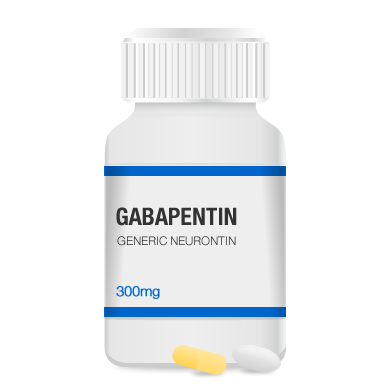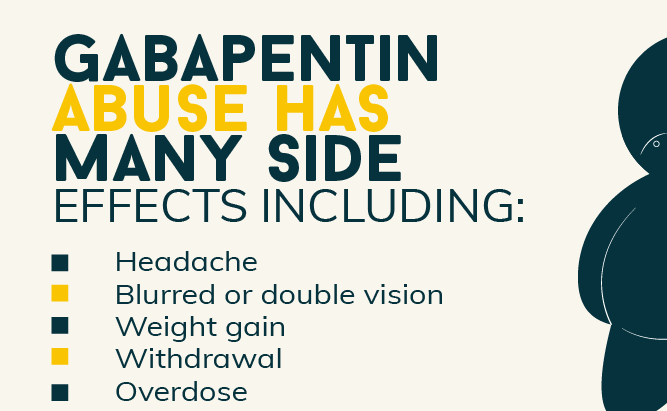Gabapentin is approved by the Food and Drug Administration to treat epilepsy and pain related to nerve damage, called neuropathy.

Also known by its brand name, Neurontin, the drug acts as a sedative. It is widely considered non-addictive and touted by the federal Centers for Disease Control and Prevention as an alternative intervention to opiates for chronic pain. Generally, doctors prescribe no more than 1,800 to 2,400 milligrams of gabapentin per day, according to information on the Mayo Clinic’s website.

Gabapentin does not carry the same risk of lethal overdoses as opioids, but drug experts say the effects of using gabapentin for long periods of time or in very high quantities, particularly among sensitive populations like pregnant women, are not well-known.
What is gabapentin?

Gabapentin is a prescription drug. It comes as an oral capsule, an immediate-release oral tablet, an extended-release oral tablet, and an oral solution.
Gabapentin oral capsule is available as the brand-name drug Neurontin. It’s also available as a generic drug. Generic drugs usually cost less than the brand-name version. In some cases, the brand-name drug and the generic version may be available in different forms and strengths.
Why it’s used
Gabapentin oral capsule is used to treat the following conditions:
- Seizures: Gabapentin is used to treat partial (focal) seizures. It’s taken together with other seizure medications in adults and in children 3 years of age and older who have epilepsy.
- Postherpetic neuralgia: This is pain from nerve damage caused by shingles, a painful rash that affects adults. Shingles appears after infection with the varicella zoster virus. This virus occurs in people who have had chicken pox.Gabapentin may be used as part of a combination therapy. This means you may need to take it with other drugs.
Actually Gabapentin Can be used to treat a lot of off-label usage and a lot of doctors presscribe it as other usages such as:
Gabapentin can be used for
-
- Postmenopausal Symptoms
- Alcohol Withdrawal
- Occipital Neuralgia
- Hot Flashes
- Trigeminal Neuralgia
- Bipolar Disorder
- Migraine
- Cough
- Anxiety
- Restless Legs Syndrome
- Postherpetic Neuralgia
- Insomnia
- Pruritus
- Benign Essential Tremor
- Pudendal Neuralgia
- Transverse Myelitis
- Fibromyalgia
- Spondylolisthesis
- Peripheral Neuropathy
- Pain
- Neuropathic Pain
- Epilepsy
- Vulvodynia
- Diabetic Peripheral Neuropathy
- Hiccups
- Syringomyelia
- Reflex Sympathetic Dystrophy Syndrome
- Burning Mouth Syndrome
- Periodic Limb Movement Disorder
- Small Fiber Neuropathy
- Carpal Tunnel Syndrome
How Gabapentin works
Gabapentin belongs to a class of drugs called anticonvulsants. A class of drugs is a group of medications that work in a similar way. These drugs are often used to treat similar conditions.
It’s not fully understood how gabapentin works. For postherpetic neuralgia, it seems to prevent the increase in sensitivity to pain that occurs. For seizures, it may alter the effect of calcium (low levels of calcium may cause seizures).
Gabapentin side effects

Gabapentin oral capsule can cause mild or serious side effects. The following list contains some of the key side effects that may occur while taking gabapentin. This list does not include all possible side effects.
For more information on the possible side effects of gabapentin, or tips on how to deal with a troubling side effect, talk with your doctor or pharmacist.
More common side effects
Some of the more common side effects that can occur with use of gabapentin are listed below, along with their rates:
Also:
-
-
- viral infection
- fever
- nausea and vomiting
- trouble speaking
- hostility
- jerky movements
-
The side effect rates are based on patients over 12 years old, as reported in clinical trials for the brand equivalent, Neurontin. Certain rates vary by age. For example, pediatric patients 3 to 12 years of age most commonly experienced viral infection (11%), fever (10%), nausea and/or vomiting (8), tiredness (8%), and hostility (8%). There were no clinically significant differences in rates between men and women.
If these effects are mild, they may go away within a few days or a couple of weeks. If they’re more severe or don’t go away, talk to your doctor or pharmacist.
Serious side effects
Call your doctor right away if you have serious side effects. Call 911 if your symptoms feel life-threatening or if you think you’re having a medical emergency. Serious side effects and their symptoms can include the following:
- Changes in mood or anxiety. Symptoms can include:
- thoughts of suicide or dying
- attempts to commit suicide
- anxiety that’s new or gets worse
- crankiness that’s new or gets worse
- restlessness
- panic attacks
- trouble sleeping
- anger
- aggressive or violent behavior
- extreme increase in activity and talking
- unusual changes in behavior or mood
- Changes in behavior and thinking, especially in children ages 3 to 12 years. Symptoms can include:
- emotional changes
- aggressiveness
- trouble concentrating
- restlessness
- changes in school performance
- hyper behavior
- Serious and life-threatening allergic reaction. Symptoms can include:
- skin rashes
- hives
- fever
- swollen glands that do not go away
- swollen lips and tongue
- yellowing of your skin or the whites of your eyes
- unusual bruising or bleeding
- severe tiredness or weakness
- unexpected muscle pain
- frequent infections
What other drugs will affect gabapentin?
Taking gabapentin with other drugs that make you sleepy can worsen this effect. Ask your doctor before taking a sleeping pill, narcotic medication, muscle relaxer, or medicine for anxiety, depression, or seizures.
Other drugs may interact with gabapentin, including prescription and over-the-counter medicines, vitamins, and herbal products. Tell your doctor about all your current medicines and any medicine you start or stop using.
Please click this page to learn more about Gabapentin Interaction.